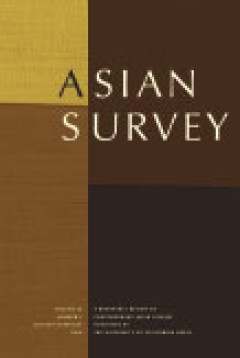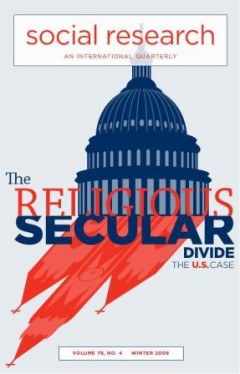Filter by

An Update of a Classic: Applying Expectancy Theory to Understand Contracted P…
This study explores whether a classic motivation theory traditionally applied by public administration scholars in bureaucratic settings can also be used to understand relationships in intersectoral service delivery networks. It focuses on how well expectancy theory explains contracted provider motivation to properly use service-monitoring tools because of contract rewards and penalties. To exa…
- Edition
- Vol. 42 no. 4 July 2010 pp. 375-403
- ISBN/ISSN
- 00953997
- Collation
- -
- Series Title
- Administration & Society
- Call Number
- -

Paradox and Collaboration in Network Management
Qualitative evidence from action networks is used to answer the research question, How do leaders of successful networks manage collaboration challenges to make things happen? This study of two urban immigration coalitions in the United States found that their leaders developed practices as a response to two paradoxical requirements of network collaboration: managing unity and diversity when do…
- Edition
- Vol. 42 no. 4 July 2010 pp. 404-440
- ISBN/ISSN
- 00953997
- Collation
- -
- Series Title
- Administration & Society
- Call Number
- -

Effects of Information Technology on Policy Decision-Making Processes: Some E…
This study examined the effects of information technology (IT) on policy decision-making processes, especially in the stages of goal setting and choosing among policy alternatives. It used survey data collected in 1998 and 2005 from the metropolitan areas of Seoul and Busan in Korea. The survey results showed that there has been a positive change in the perception of the effects of IT on policy…
- Edition
- Vol. 42 no. 4 July 2010 pp. 441-459
- ISBN/ISSN
- 00953997
- Collation
- -
- Series Title
- Administration & Society
- Call Number
- -

Korean Social Concertation at the Crossroads: Consolidation or Deterioration?
Since South Korea made a historic social pact in 1998 amid the Asian financial crisis, a newly established presidential committee, the Korea Tripartite Commission, has become a center of social concertation. The Korean case signifies the need to complement the theory of social concertation with a new set of hypotheses concerning structural factors, with particular attention to industrial struct…
- Edition
- Vol. 50, No. 3, May/June 2010, Pages 449–473
- ISBN/ISSN
- 00044687
- Collation
- -
- Series Title
- Asian Survey
- Call Number
- -

The Limits of Foreign Aid in Strengthening Bangladesh's Parliament: Analysis …
This paper examines the multi-donor-funded project called Strengthening Parliamentary Democracy (SPD), designed to strengthen Bangladesh's Parliament. In particular, it focuses on attempted reforms in the parliamentary committee system and in its rules of procedure. The article argues that the SPD has only been marginally successful in meeting its objectives, and identifies reasons for this lim…
- Edition
- Vol. 50, No. 3, May/June 2010, Pages 474–496
- ISBN/ISSN
- 00044687
- Collation
- -
- Series Title
- Asian Survey
- Call Number
- -

Japan's New Regionalism: China Shock, Values, and the East Asian Community
Japan's new thinking on regionalism is a means of soft balancing that counters a rising Chinese influence. A "hard" balancing strategy through an alliance with the United States is insufficient because the Chinese economy is indispensable for Japan's prosperity and because China is rising through soft power. Japan's response uses the concept of community based on universal values.
- Edition
- Vol. 50, No. 3, May/June 2010, Pages 497–519
- ISBN/ISSN
- 00044687
- Collation
- -
- Series Title
- Asian Survey
- Call Number
- -

The Great Recession and China's Policy Toward Asian Regionalism
The global recession has had seemingly conflicting impacts on China's policy toward Asian regionalism. But China has never viewed regionalism and globalism as mutually exclusive and has seen strategic value in pursuing both. A stronger China emerging from the crisis is playing both regional and global games with a stronger hand.
- Edition
- Vol. 50, No. 3, May/June 2010, Pages 520–538
- ISBN/ISSN
- 00044687
- Collation
- -
- Series Title
- Asian Survey
- Call Number
- -

Sanctioning North Korea: The Political Economy of Denuclearization and Prolif…
Following North Korea's second nuclear test, the U.N. Security Council tightened sanctions. However, North Korea has tilted its relations toward partners uninterested in such measures. Since 2005, it has retreated from economic reform, most obviously in the 2009 confiscatory currency reform. These developments raise doubts about North Korea's interest in engagement.
- Edition
- Vol. 50, No. 3, May/June 2010, Pages 539–568
- ISBN/ISSN
- 00044687
- Collation
- -
- Series Title
- Asian Survey
- Call Number
- -

Securitizing Terrorism in Southeast Asia: Accounting for the Varying Response…
This article explains the variable success after the September 11, 2001, attacks of the securitization of terrorism in two ASEAN member states, Singapore and Indonesia. The two countries are selected because of the differences in their government characteristics and their domestic politics. The article argues that differences in the nature of the domestic audience explain the divergence of secu…
- Edition
- Vol. 50, No. 3, May/June 2010, Pages 569–590
- ISBN/ISSN
- 00044687
- Collation
- -
- Series Title
- Asian Survey
- Call Number
- -

Framing Energy Security Between Russia and South Korea?: Progress, Problems, …
This article examines the progress, problems, and prospects of Russian-South Korean energy security cooperation. Several ongoing energy projects between Russia and South Korea are highly likely to enhance energy security needs for both countries. Nevertheless, the development of bilateral energy projects has been extremely slow.
- Edition
- Vol. 50, No. 3, May/June 2010, Pages 591–614
- ISBN/ISSN
- 00044687
- Collation
- -
- Series Title
- Asian Survey
- Call Number
- -

China's Strategic Interests in Cambodia: Influence and Resources
Cambodia is pivotal to China's strategies to project greater influence in Southeast Asia, buffer longstanding rivals, and potentially tame America's hegemony. China's transformation from regional backwater into influential global actor raises concerns for many countries. As expected, the rise of a powerful regional player makes traditional hegemonic countries anxious.
- Edition
- Vol. 50, No. 3, May/June 2010, Pages 615–639
- ISBN/ISSN
- 00044687
- Collation
- -
- Series Title
- Asian Survey
- Call Number
- -

Preventing State Crimes Against Democracy
This article analyzes U.S. vulnerabilities to state crimes against democracy (SCADs). SCADs are actions or inactions by government insiders intended to manipulate democratic processes and undermine popular sovereignty. Watergate and Iran�Contra are well?known examples of SCADs involving top officials. SCADs in high office are difficult to detect and successfully prosecute because they are usual…
- Edition
- Vol. 41 no. 5 September 2009 pp. 527-550
- ISBN/ISSN
- 00953997
- Collation
- -
- Series Title
- Administration & Society
- Call Number
- -

The Role of Government in Managing Intercultural Relations: Multicultural Dis…
When intercultural tensions flare up, governments typically must engage the conflict one way or another. This article questions the possible role of government in transforming these difficult social�cultural�political conflicts into democratic moments. Three theoretical approaches to democracy compete for status in the realm of multicultural politics: majoritarian, consociational, and deliberat…
- Edition
- Vol. 41 no. 5 September 2009 pp. 551-575
- ISBN/ISSN
- 00953997
- Collation
- -
- Series Title
- Administration & Society
- Call Number
- -

Inside the Black Box: The Development of Proposed Rules and the Limits of Pro…
The need to develop specific proposals as a basis for formal participation ensures the most important policy decisions in rulemaking are often made before notice?and?comment requirements come to bear. Although informal stakeholder participation in the development of proposed rules is common, it tends to be unstructured and idiosyncratic and to lack the assurances of openness that characterize t…
- Edition
- Vol. 41 no. 5 September 2009 pp. 576-599
- ISBN/ISSN
- 00953997
- Collation
- -
- Series Title
- Administration & Society
- Call Number
- -

Giving and Getting: Charitable Activity and Public Assistance
This study assesses the extent to which welfare recipients engage in giving money and time to charitable causes. Using the 2003 Center on Philanthropy Panel Study data, this study examines the effects of public assistance�holding constant earned income and demographic traits�on two major types of charitable activities: charitable giving and volunteering. Using a Tobit specification, as appropri…
- Edition
- Vol. 41 no. 5 September 2009 pp. 600-627
- ISBN/ISSN
- 00953997
- Collation
- -
- Series Title
- Administration & Society
- Call Number
- -

Religion and the Earthly City
This paper explores the religious origins of the secular. It troubles the often rigid and misleading opposition between the secular and sacred through an exploration of this relationship in the thought of Augustine, Calvin, Madison, up to Obama.
- Edition
- Volume 76, Number 4 Winter 2009 pp. 989 - 1000
- ISBN/ISSN
- 0037783x
- Collation
- -
- Series Title
- Social Research
- Call Number
- -

Locke and the Political Origins of Secularism
The paper tries to show the importance of the writings of John Locke in preparing the way for secularism. He provides a theory for disentangling religion and the state for several main reasons, including the avoidance of religious persecution of minorties; the avoidance of civil strife; and the need to leave it to individuals to work out their own salvation by exercising their conscience free o…
- Edition
- Volume 76, Number 4 Winter 2009 pp. 1001 - 1034
- ISBN/ISSN
- 0037783x
- Collation
- -
- Series Title
- Social Research
- Call Number
- -

The Secular-Religious Divide: Kant's Legacy
How has philosophy contributed to bringing about a secular age? What role has philosophy played in bringing about a secular age in which belief and unbelief are both viable options? This paper does not address philosophy in general but rather focuses on a single thinker, Immanuel Kant, to argue that the consequences�both intended and unintended�of Kant's critical philosophy has had the greatest…
- Edition
- Volume 76, Number 4 Winter 2009 1035 - 1048
- ISBN/ISSN
- 0037783x
- Collation
- -
- Series Title
- Social Research
- Call Number
- -

The Secular and Secularisms
This paper explores the distinction between secularism as ideology and secularism as statecraft principle. By secularism as statecraft principle, I understand simply some principle of separation between religious and political authority, either for the sake of the neutrality of the state vis-�-vis each and all religions, or for the sake of protecting the freedom of conscience of each individual…
- Edition
- Volume 76, Number 4 Winter 2009 pp. 1049 - 1066
- ISBN/ISSN
- 0037783x
- Collation
- -
- Series Title
- Social Research
- Call Number
- -

Introduction: Religious Selves, Secular Selves
Recent scholarship has taken us beyond the simplistic framework of the self in or outside world religions. It has deepened, historicized, and pluralized our sense of selves between and within cultures, and shown us that selves�especially perhaps the "self-made"�are narrated and performed intersubjectively and politically. Scholars have questioned the ways in which selves are built, unbuilt, and…
- Edition
- Volume 76, Number 4 Winter 2009 pp. 1069 - 1071
- ISBN/ISSN
- 0037783x
- Collation
- -
- Series Title
- Sociel Research
- Call Number
- -
 Computer Science, Information & General Works
Computer Science, Information & General Works  Philosophy & Psychology
Philosophy & Psychology  Religion
Religion  Social Sciences
Social Sciences  Language
Language  Pure Science
Pure Science  Applied Sciences
Applied Sciences  Art & Recreation
Art & Recreation  Literature
Literature  History & Geography
History & Geography